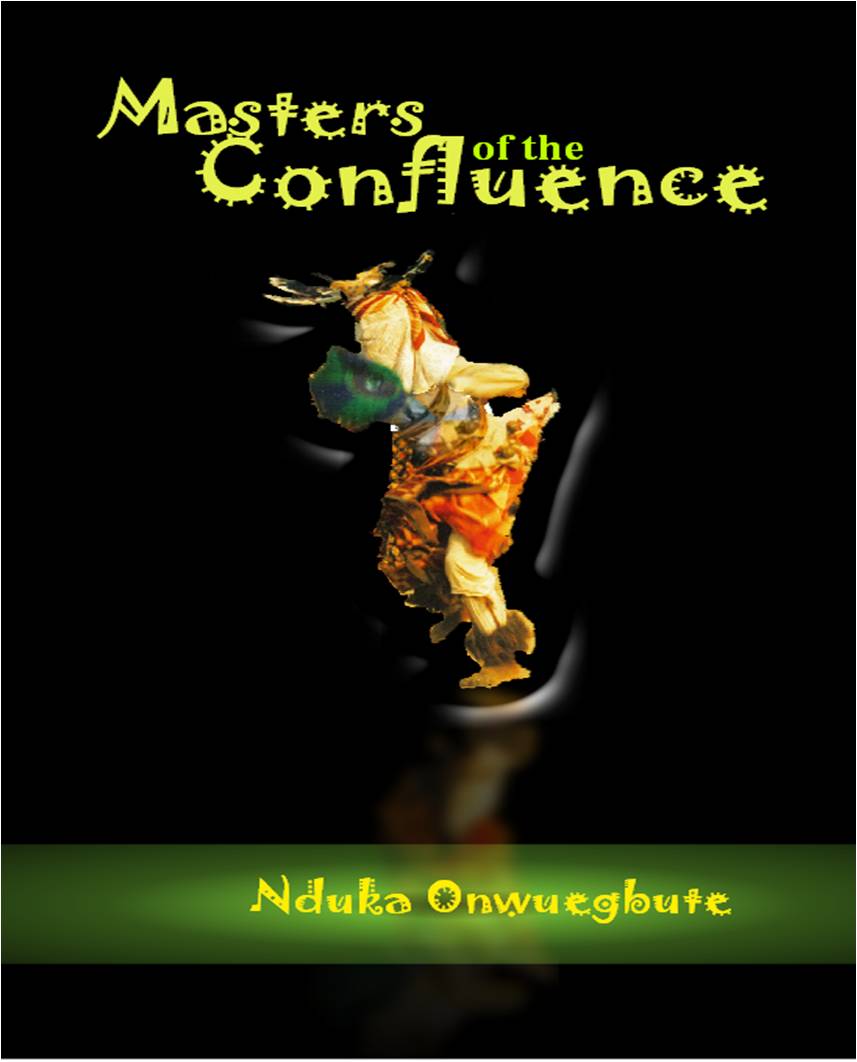This book had a wonderful story. I thoroughly enjoyed reading about the culture and the goings-on of the African trinity of tribes and people. It was captivating in a way, and I really did enjoy the way it read the way someone would speak the story.
Before the story begins, the author specifically tells you that you shouldn't read it if you are looking to follow the life of one central protagonist, and he tells you that the story moves slowly. I was expecting a story to be as slow as something written by J.R.R. Tolkien, but I was pleasantly surprised to find that it moved more quickly than that for me.
He also warned that the book promised no ending, but I didn't realize how literally he meant it. That was my major peeve with the book. The book ended the exact same way it began ((however, he uses different perspectives for it and different descriptions)), but it felt so unfinished, as if there should be more to the story. It left me craving more, and I was angry that I didn't get more. It seems like there should be a sequel to this, but I highly doubt the author ever intends to continue with a sequel which is just as well.
As far as technicalities go, there were a lot of grammatical and spelling errors throughout the book that I felt were obvious enough to be caught by whomever edited the piece. Those errors occasionally made it difficult to understand what I was reading, but I was sometimes able to figure it out through the use of context clues.
I found myself also wishing that there had been more words in the glossary that could have helped me better understand some of the vocabulary that left me floundering a little. I think a small family tree in the back with the glossary could have been a nice touch as well.
All in all, each character had her or his own personalities that were easily distinguished. There was much character development throughout the three generations of people that were depicted, and that was very good. I also liked that there were strong female characters along with the strong male characters, but each gender also had some among their ranks that were weak leaders in their own right, just as any gender and grouping of people may have.
I found it sad that Onitsha's dream only lasted until his only living son, Wawa, was murdered. Osha, Wawa's only child, allowed the trinity of villages to prosper, but he ruled it as a king when Onitsha's dream had always been to have free peoples who ruled themselves. Having been a slave who had escaped to begin the trinity, he disliked the idea of one person ruling over all.
There were very happy points and very sad points. Over all, the theme of the book was sad, but the book itself was very well done from the storyteller.
Before the story begins, the author specifically tells you that you shouldn't read it if you are looking to follow the life of one central protagonist, and he tells you that the story moves slowly. I was expecting a story to be as slow as something written by J.R.R. Tolkien, but I was pleasantly surprised to find that it moved more quickly than that for me.
He also warned that the book promised no ending, but I didn't realize how literally he meant it. That was my major peeve with the book. The book ended the exact same way it began ((however, he uses different perspectives for it and different descriptions)), but it felt so unfinished, as if there should be more to the story. It left me craving more, and I was angry that I didn't get more. It seems like there should be a sequel to this, but I highly doubt the author ever intends to continue with a sequel which is just as well.
As far as technicalities go, there were a lot of grammatical and spelling errors throughout the book that I felt were obvious enough to be caught by whomever edited the piece. Those errors occasionally made it difficult to understand what I was reading, but I was sometimes able to figure it out through the use of context clues.
I found myself also wishing that there had been more words in the glossary that could have helped me better understand some of the vocabulary that left me floundering a little. I think a small family tree in the back with the glossary could have been a nice touch as well.
All in all, each character had her or his own personalities that were easily distinguished. There was much character development throughout the three generations of people that were depicted, and that was very good. I also liked that there were strong female characters along with the strong male characters, but each gender also had some among their ranks that were weak leaders in their own right, just as any gender and grouping of people may have.
I found it sad that Onitsha's dream only lasted until his only living son, Wawa, was murdered. Osha, Wawa's only child, allowed the trinity of villages to prosper, but he ruled it as a king when Onitsha's dream had always been to have free peoples who ruled themselves. Having been a slave who had escaped to begin the trinity, he disliked the idea of one person ruling over all.
There were very happy points and very sad points. Over all, the theme of the book was sad, but the book itself was very well done from the storyteller.








